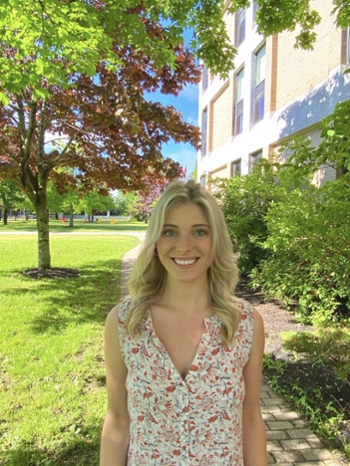SGS Celebrates Graduate Student Winners of Federal Tri-Council Awards - Madison Herrington
Author: Andrea
Posted on Feb 1, 2023
Category: Student Stories , Money Matters

Profile of: Madison Herrington
Award Received: Canada Graduate Scholarship – Masters (The Social Sciences and Humanities Research Council of Canada)
Awarded for the project: “Examining Attitudes Towards Ageing”
Faculty: Arts
Department: Psychology
Project supervised by: Dr. Lilly Both
My research examines predictors of ageist attitudes. Ageism occurs when demeaning attitudes are directed by one age group towards another age group. Previous research has shown that older adults are often subjected to ageist attitudes and, in turn, experience negative consequences across multiple domains such as employment, health, and well-being. Several theories have been proposed as to why ageism towards older adults occurs, such as contact theory (i.e., quantity and quality of contact), terror management theory (i.e., ageing anxiety and fear of death), and modernization theory (i.e., the belief that older adults are a burden/obsolete). However, researchers have selectively tested these theories, and many have failed to examine them within one model. My work expands on previous research by investigating the multiple theories of ageism within one model. The findings of my research will help to identify predictors of ageist attitudes towards older adults. Moreover, the results will be used to disseminate knowledge to the field of ageing research and may serve to guide intervention strategies for ageism towards older adults.
In the future, I would like to be employed in the field of healthcare treating ageing and aged adults. My current master’s research will allow me to broaden my understanding of older adults, which will be a valuable asset in my future career. Throughout my career, I would like to be an advocate for health policy and emphasize the need and the importance of quality care delivery for older adults. Understanding attitudes towards older adults is an important first step in developing interventions and policy for older adult care. As such, my master’s work will serve to further my understanding of ageist attitudes towards older adults so that I can apply this knowledge in my future career.
